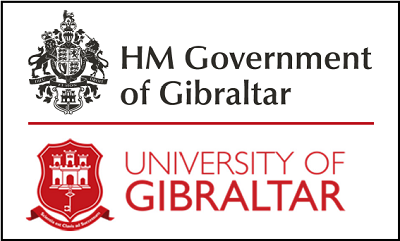The Departments of Education, Environment, Heritage and Climate Change and the University of Gibraltar have announced their partnership in an international collaborative project. This project, ClimACT, funded by the European Union Interreg SUDOE programme, brings together institutions and schools from Gibraltar, Portugal, France and Spain, jointly working to deliver teaching and learning support materials to engage with Education for Sustainable Development.
This exciting initiative aims to embrace the whole school community and seeks to actively improve sustainable practices in schools across several European countries. ClimACT will provide learning materials to support students’ comprehension of the low carbon economy and will offer training and resources to assist teaching colleagues with the embedding of sustainability in everyday school experiences. ClimACT will also deliver guidelines to support schools to implement sustainable
management practice and improve environmental performance.
"We are confident that the combination of both environmental assessment and educational resources shall inspire schools to adopt innovative managerial and education practice to work towards embedding education for sustainable development into the core curriculum." explains a Govt spokesperson. "This is a great opportunity to have Gibraltar schools engaged in an international funded project which will deliver environmentally sustainable practices. We are looking forward to working together and start trialling these education and training resources in local schools. We hope to contribute to enhancing the learning environment and help develop critical thinking and leadership skills amongst young students to engage and inspire future generations to participate in changes towards a more sustainable future."
Minister for Education, Environment and Climate Change Dr John Cortes commented, “This project is significant in bringing together Education with Environment and Sustainability, and also demonstrates the importance of EU funding in providing added value across a range of disciplines. Engagement of teachers and students in projects of this nature is important for the future of our community and the world, and the involvement of the countries in our region will place the work in an important international context.”
Professor Daniella Tilbury, Vice-Chancellor of the University, and Professor in Education for Sustainable Development, explained: "The project recognises that local schools have a tradition of successfully engaging students in environmental education initiatives. It builds on this leading education work, seeking an alignment between the curriculum and school management efforts. It is no longer sufficient to learn the conceptual or theoretical aspects of global warming in the classroom. Students need to experience and see how the school community embraces low carbon practices in its decision-making and day to day actions. The partnership recognises its responsibility in supporting school leaders and teachers to respond to this challenge and assist in lightening the footprint of education."
Acting Director of Education, Darren Grech went on to say the following: “We are delighted to embrace this project, and for our schools to be working in close collaboration with other schools in different countries. It is truly exciting. We already educate our children to care for the world we live in, to be aware that what we do and how we behave can impact positively or negatively. Children are deliberately taught that it is possible to continue to meet human needs without undermining the natural resources of our planet; human development and sustainability are not mutually exclusive. Yet this project goes one step further: schools will be making the effort to reduce their carbon footprint. They will screen and prioritize what they do on a daily basis, in order to achieve this. Furthermore, they will set priorities and objectives for the future. The educational potential here is therefore tremendous as we prepare our children to be the responsible citizens of tomorrow.”
Dr Liesl Torres, CEO of the Department of the Environment, Heritage and Climate Change said "Sustainability and Environmental Stewardship must become a way of life and not just concepts which we strive to adopt. Programmes such as these will ensure that younger generations embrace these concepts through improved student involvement and interaction. These programmes allow students to explore core issues, engage in problem solving, and take action to improve their living environment. As a result, individuals develop a deeper understanding of the issues and gather the skills to make informed and responsible decisions. Learning in this manner facilitates applied thinking, and it is only when we apply our thinking, that these concepts evolve from a subject learnt in a classroom to an inherent part of our modus operandi."
